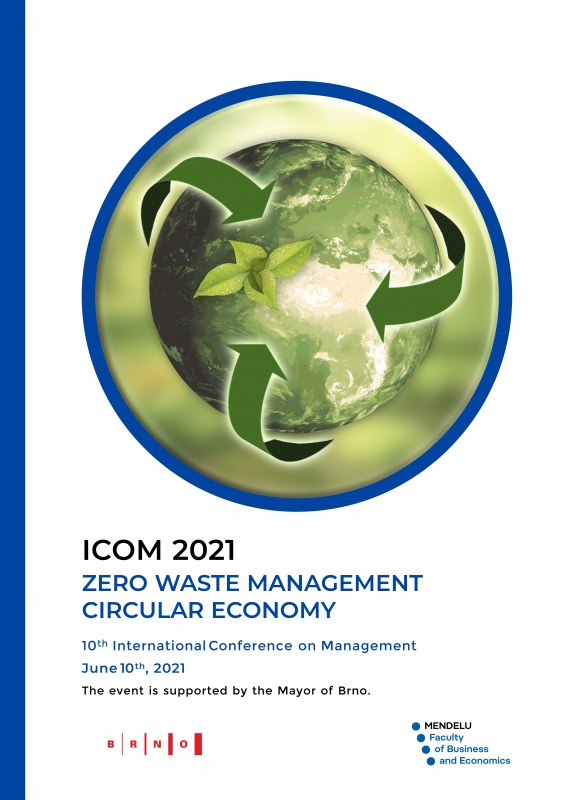
DOI: 10.11118/978-80-7509-820-7-0056
APPLICATION OF THE THEORY OF FRAMES IN ORGANISATIONAL CONFLICT RESOLUTION
- Leszek CICHOBŁAZIŃSKI
This article deals with the use of Frame Analysis in research and organisational conflict. The first part of the study includes the theoretical foundations of the frame analysis in its classic form presented by Erving Goffman. The following sections include a discussion of the concepts in the area of management sciences that allow the incorporation of frame theory into organisational studies. The empirical section includes an analysis of the cases of parties' behaviour during mediation in collective disputes, which were interpreted in light of the frame theory.
Purpose: The aim of the paper is examine how the Frame Analysis can be useful for the organizational conflict resolution.
Methodology: The analysis is based on the assumptions of the methodology of qualitative research in sociology. The article ends with theoretical and practical conclusions regarding the explanation of the course of an organizational conflict and the role of the mediator in resolving it.
Findings: Not only Interest Based Approach is applicable to the organizational conflict resolution procedure but also Humanistic Approach is very effective in this scope.
Klíčová slova: Anthropology of Experience, Frame Analysis, Humanistic Approach to Management, Mediation in a Collective Dispute, Organizational Conflict.
stránky: 56-63, Publikováno: 2021, online: 2021
Reference
- Brzezicka, J. 2016. Znaczenie heurystyki zakotwiczenia i dostosowania w procesie wartościotwórczym na rynku nieruchomości. Acta Scientiarum Polonorum, Administratio Locorum, 15(1): 31-44.
 Přejít k původnímu zdroji...
Přejít k původnímu zdroji... - Bylok, F., Cichobłaziński, L. 2015. Pilgrimage Tourism in Consumer Society: Foot Pilgrimages to the Jasna Góra Sanctuary in Czestochova. In: Sonnenburg, S., Wee, D. (Eds.). Touring Consumption. Wiesbaden: Springer Verlag..
 Přejít k původnímu zdroji...
Přejít k původnímu zdroji... - Cichobłaziński, L. 2011. Mediator jako antropolog - podejście antropologiczne w rozwiązywaniu konfliktów pracowniczych. Problemy Zarządzania, 9(2): 63-74.
- Cichobłaziński, L. 2013. Resolving Collective Disputes in Poland: A Narrative Perspective. In: Muller, A. P., Becker, L. (Eds.). Narrative and Innovation. New Ideas for Business Administration. Strategic Management and Entrepreneurship. Wiesbaden: Springer, pp. 119-129.
 Přejít k původnímu zdroji...
Přejít k původnímu zdroji... - Cichobłaziński, L. 2016. Antropologiczne podejście do zarządzania konfliktem organizacyjnym na przykładzie mediacji w sporach zbiorowych - metoda narracyjna. Marketing i Rynek, 3: 71 - 80.
- Czarniawska, B. 2010. Trochę inna teoria organizacji. Organizowanie jako konstrukcja sieci działań. Warszawa: Poltext.
- Czarniawska, B. 2014. Zmiana kadru. Jak zarządzano Warszawą w okresie przemian. Warszawa: Sedno Wydawnictwo Akademickie.
- Czyżewski, M. 2010. Analiza ramowa, czyli "co tu się dzieje?"Analiza ramowa. Esej z organizacji doświadczenia. Kraków: Nomos.
- Festinger, L. 2007. Teoria dysonansu poznawczego. Warszawa: Wydawnictwo Naukowe PWN.
- Fisher, R., Ury, W. 1991. Getting to Yes: Negotiating Agreement Without Giving In. New York: Random House Business Books. Available at: https://www.fd.unl.pt/docentes_docs/ma/AGON_MA_25849.pdf [Access: 30.10.2019].
- Glenn, P. 2003. Laughter in Interaction. Cambridge: Cabridge Univerity Press,.
 Přejít k původnímu zdroji...
Přejít k původnímu zdroji... - Goffman, E. 1977. Człowiek w teatrze życia codziennego. Warszawa: Państwowy Instytut Wydawniczy.
- Goffman, E. 1986. Frame Analysis: An Essay on the Organisation of Experience. Boston: Northeastern University Press.
- Goffman E. 2010. Analiza ramowa. Esej z organizacji doświadczenia. Kraków: Nomos.
- Klimko, M. 2016. Grilowanie na chłodno. Polityka, 3049, dated 01.03.2016, p. 86.
- Konecki, K. T. 2009. Odwoływalne prawo "utraty twarzy" a odwaga. Zeszyty Karmelitańskie, 2(47): 69-73.
- Konecki, K. T. 2012. "Analiza ramowa. Esej z organizacji doświadczenia", Erving Goffman, tł. Stanisław Burdziej, Kraków 2010: [recenzja]. Kultura i Wychowanie, 4(2): 175-179
- Malhotra, D. Bazerman, M. H. 2008. Psychological Influence in Negotiation: An Introduction Long Overdue. Journal of Management, 34(3): 509 - 531.
 Přejít k původnímu zdroji...
Přejít k původnímu zdroji... - Moore, C. 2003. The Mediation Process: Practical Strategies for Resolving Conflicts. San Francisco: John Wiley & Sons.
- Stępień, A. B. 1997. Doświadczenie. In: Herbut, J. Leksykon Filozofii Klasycznej. Lublin: Towarzystwo Naukowe KUL, pp.119-120.
- Turner, V. 1975. Dramas, Fields, and Metaphors: Symbolic Action in Human Society. Ithaca: Cornel University Press.
- Van Gennep, A. 2006. Obrzędy przejścia. Warszawa: Państwowy Instytut Wydawniczy.


